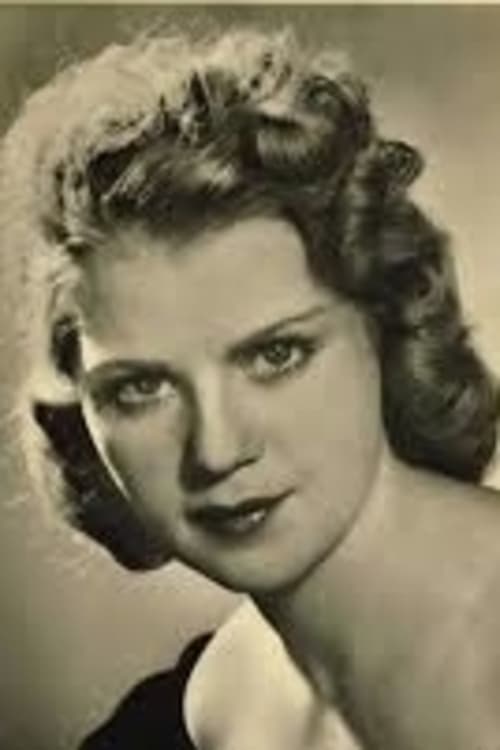Kristina Söderbaum
Nacimiento : 1912-09-05, Stockholm, Sweden
Muerte : 2001-02-12
Historia
Beata Margareta Kristina Söderbaum was a Swedish actress best known for her German films. She appeared in 25 feature films. Most of them produced during the Nazi era. Kristina was married to the German director Veit Harlan 1939-1964.

Old Woman
The Orient Express, on its night trip from Munich to Venice, is full because of the beginning of the carnival in Venice. Between the passengers are a young writer, an actress, and her daughter, an elderly dancer, five neo-nazi punks, and a strange man that seems to have some kind of influence over them through their dreams.

Herself
A documentary about the 75th birhday of the UFA film studios directed by Hans-Christoph Blumenberg.

Comtessa

Emma May
This ethereal, three-hour biopic is the middle film in Hans-Jürgen Syberberg’s “German Trilogy” on the mythological foundations of the Third Reich. By fusing theater, music, and cinema, Syberberg conjures up Karl May (1842-1912), the immensely popular German author, who set many of his adventure novels in an idealized version of the American Wild West. His tales of the cowboy and the Ubermensch alike were beloved by many, including (Our) Hitler, who supposedly ordered his generals to read May works after defeats in the Russian campaign.

Yrida

Ines Thormälen

Annemie Müller

Katharina von Weber

Yrida
A circus story

Yrida

Angelika

Hanna Amon
Hanna Amon and her brother Thomas live on an estate they've inherited from their parents. Local veterinarian Brunner loves Hanna from afar, and Thomas is in love with the daughter of the local mayor. Love, however, doesn't always mean happiness, as both Hanna and Thomas are soon to find out.

Katharina von Hollstein
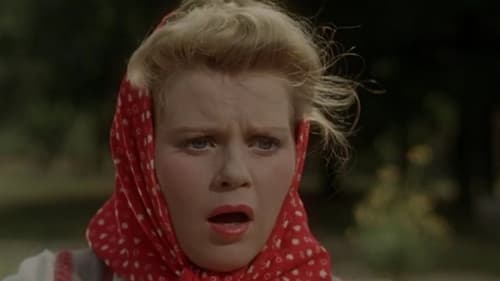
Maria
During Napoleon's victorious campaign in Germany, the city of Kolberg gets isolated from the retreating Prussian forces. The population of Kolberg refuses to capitulate and organizes the resistance against the French army, which immediately submits the city to massive bombardments.

Aels Flodéen
Äls, a young woman from Sweden living in Hamburg in the summer months attracts a newly married explorer, Albrecht Froben who has just returned to his native city. But although Äls seems to be 'life itself', she suffers from a tropical disease which is slowly killing her. Froben is torn between Äls and his wife Octavia, who he seen as a kind of 'heavenly' counterpart to the earthy and beguiling Äls.

Elisabeth Uhl
A man and a woman struggle to stifle their love for each other, even after he moves away to travel the world and she marries a suitor.

Anna Jobst
Anna Jobst is the daughter of a rich, conservative farmer. Living on the bank of the Moldau, she wishes nothing more than follow the river to Prague, the "Golden City". After arriving, she quickly falls into a bad crowd.
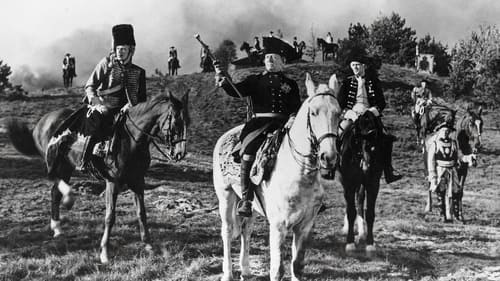
Luise Treskow
King Frederick II (aka "Frederick the Great") of Prussia is engaged in a major battle against the Austrian army at Kunersdorf, and things aren't going well. The Austrians are inflicting major casualties, and his army is beginning to crumble. Defeat seems inevitable when a combination of events gives him hope that he may pull victory from the jaws of defeat after all.
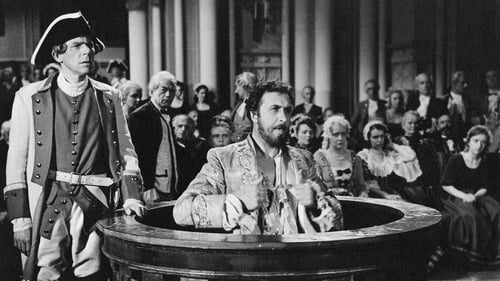
Dorothea Sturm
Nazi historical drama about Duke Karl Alexander of Württemberg and his treasurer Süß Oppenheimer.

Elske Settegast
From the same Sudermann story that inspired Murnau's Sunrise (1927). A villager is tempted by a sophisticated city woman and almost kills his wife in a boating accident.

Ev Henlein
Nuremberg durting the time of Albrecht Durer and the famous geographer Martin Behaim: the locksmith Peter Henlein is looking for a way to make bullets more accurate by designing a new form. Just as he welds together two round balls into an elongated shape, he believes he's discovered that his assistant Konrad is trying to alienate his wife from him. There is a struggle, during which Henlein's new kind of bullet strikes him in the chest. The doctor, unaware that there are two bullets lodged in his body, because there was only one shot, only removes one.
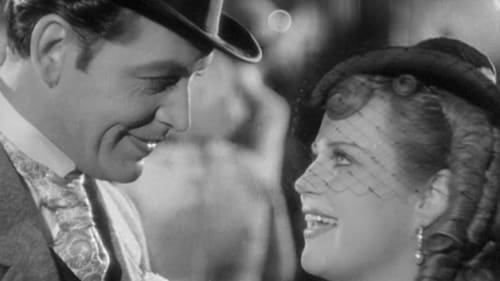
Séraphine Lawrence
Séraphine and her mother arrive in Paris to visit the 1867 World Exhibition. In an overcrowded city they must be accommodated in separate hotels. During the night the mother, who wasn't feeling very well, gets suddenly worse. When next morning Séraphine goes to meet her every trace of her presence has disappeared and everybody denies having ever met her. The bewildered young woman must find someone who believes her. Previous version of So Long at the Fair (1950).

Ännchen
Germany, 1890: Having just gotten his high-school diploma, Hans leaves for Heidelberg to begin his university studies. But first, he wants to visit his uncle, Pastor Hoppe, in the small village of Rosenau. It's here that he again meets his cousin and childhood friend Annie. Annie is the illegitimate child of Pastor Hoppe's sister, who's left the upbringing of her offspring to the man-of-the-cloth. Conservative chaplain Schigorski continually tries to convince Annie to join the nearby cloister and thus "atone" for the sins of her mother. And it's getting more difficult for the fun-loving girl to escape the chaplain's harrassment. When Hans arrives, old feelings of lust come back to the surface.

Minning
The clever Zacharias Bräsig is a good friend to all and tries to help out, where he can. Bräsig also meddles in the relationships of young people, so that by the end of the film, there's a double marriage.
